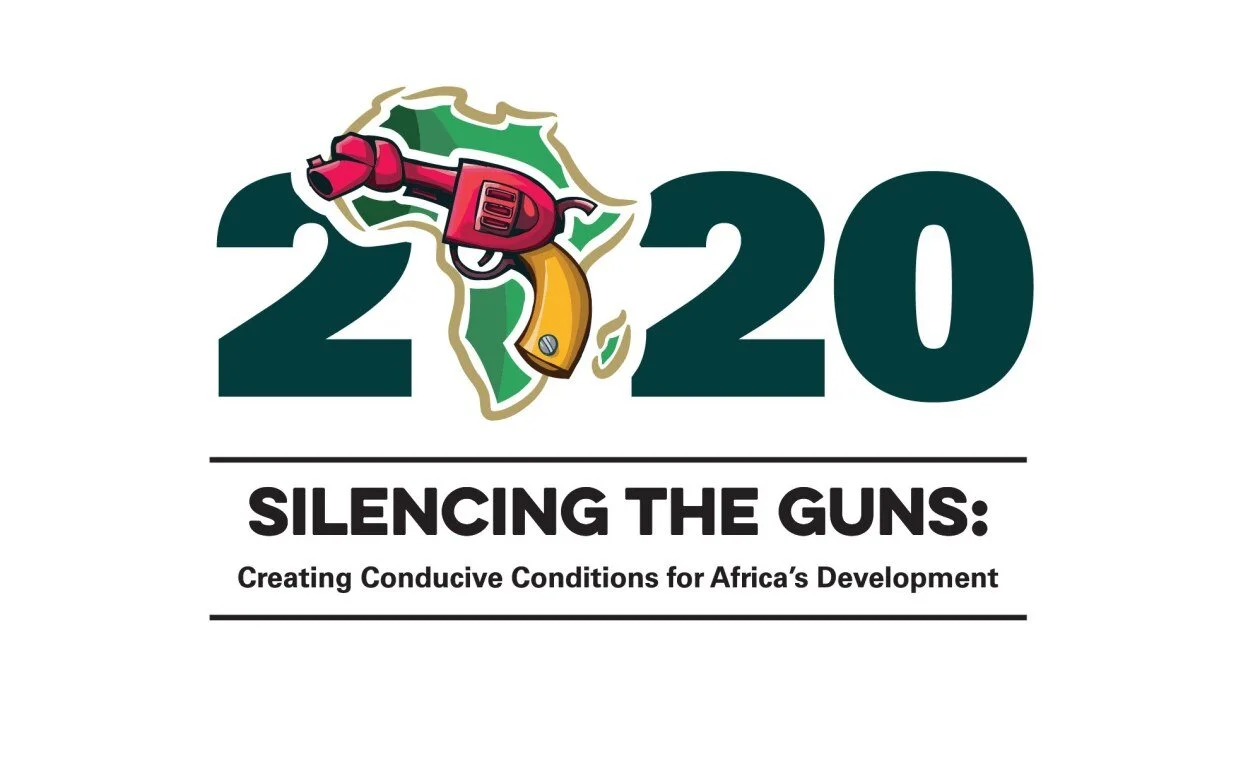In 2014, the Fifth African Union High-Level Retreat on the Promotion of Peace, Security and Stability in Africa was held from 21st to 23rd October in Arusha, Tanzania. Convened under the theme ‘Silencing the guns − owning the future’, the objective of the retreat was to provide a platform for delegates to take stock of the paradox that is Africa in terms of unprecedented levels of economic growth on one hand and rising instability and insecurity on the other. AU’s 50th Anniversary Solemn Declaration (2013) visions an end to all wars in Africa by 2020 and ‘silencing the guns.' A major challenge in Africa’s peace and security field is how to secure lasting resolutions to conflicts. Several armed conflicts experienced in Africa have been caused by the resurgence of old problems previously deemed to have been resolved or those that were managed to the point of dialogue.
In January 2015, the African Union adopted a shared strategic framework for inclusive growth and sustainable development dubbed Agenda 2063. This document held the aspirations of the entire continent for the next 50 years and curved out a path through which they were to be achieved. Silencing the guns was a salient part of this declaration. In 2020, we still have active conflicts in the continent. These conflicts are mainly witnessed in the Democratic Republic of the Congo (DRC), Somalia, South Sudan, Nigeria, the Central African Republic (CAR) and Libya, where tens of thousands of people have been killed and millions more displaced.
Silencing the Guns: Creating Conducive Conditions for Africa's Development and Intensifying the Fight against the COVID-19 Pandemic was the theme for Africa Day by AU. The AU Office of the Youth Envoy, in partnership with the Office of the Special Adviser on Africa to the United Nations for an Africa Day celebration held a special virtual Intergenerational Dialogue on Youth Silencing The Guns.
This dialogue had a truly intergenerational panel. In her remarks, H.E Bience Gawanas, Under-Secretary-General and Special Adviser on Africa to the United Nations Secretary-General, pointed out that there is a need for the social contract between the State and the citizen to be re-emphasized. On the question “What type of leadership is needed to lead the quest on silencing the guns?”, she argued that Africa needs a leadership that is transformative, visionary and has empathy and integrity; a total sum that speaks to good governance and legitimacy of government. H.E Prof Sarah Agbor, African Union Commissioner for Human Resources, Science and Technology, shed more light on the frameworks AU has in place to help empower the Youth of Africa. She commented on various issues that relate to the youth. A key take away was the need to go beyond the rhetoric and act in order to implement various policies. She insisted on the four E’s of Education, Entrepreneurship, Engagement and Employment.
This intergenerational dialogue delved into the causes of conflict on the continent and the safeguards that are in place to protect those that are vulnerable. The refugee crisis on the continent has been around for more than five decades. This is as a result of civil wars and conflicts that sprouted in various parts of the continent. Ms Cecilia Jemenez, Special Rapporteur on the Human Rights of Internally Displaced Persons, firmly articulated that “Silencing the guns can only be rhetoric unless durable solutions particularly for youth are seriously undertaken.” She concluded by pointing out that as part of the agenda for silencing the guns, there is a dire need to seriously adopt the humanitarian development and peace nexus.
The conundrum that is war has various elements to it. Civil wars that have taken place on the continent have been between states and organized non-state actors usually within the same territory. Armed challenges against states are the bedrock of these conflicts. Mr. Victor Ochen, who has lived in a war zone before, insisted that for guns to be silenced, a few fundamental questions need to be answered. Among these are who deals in arms and ammunitions on the continent? Who uses these guns and who are the victims of the chaos unleashed by the barrel of these gun? Answers to these questions may help us find out the causes of conflicts on the continent and guide us to building frameworks that may be vital to achieving the vision of silencing the guns.
All things considered, peace and security remain to be core pillars of every civilization that has come before us. The underlying fact continues to be that there is little empirical data on civil wars before 1945. However, after 1945 the African continent has witnessed wars unfold in various parts of the continent. These wars and their causes are well documented. The AU and UN intervention through peace keeping missions is good and continue to post phenomenal results. More need to be done to achieve lasting peace in the region.
While in the process of conflict resolution, there is need for understanding why people decide to pick up guns. Lack of proper economic inclusion has for years been the leading reason why guns are picked up. To address this, governments need to practice good governance and develop and implement policies that address needs of their people without discrimination. Silencing the guns must be a collective resolve for all across the continent. Only then can we truly achieve this vision.
Antony Karanja is a Researcher and Project Developer at The Youth Cafe.


